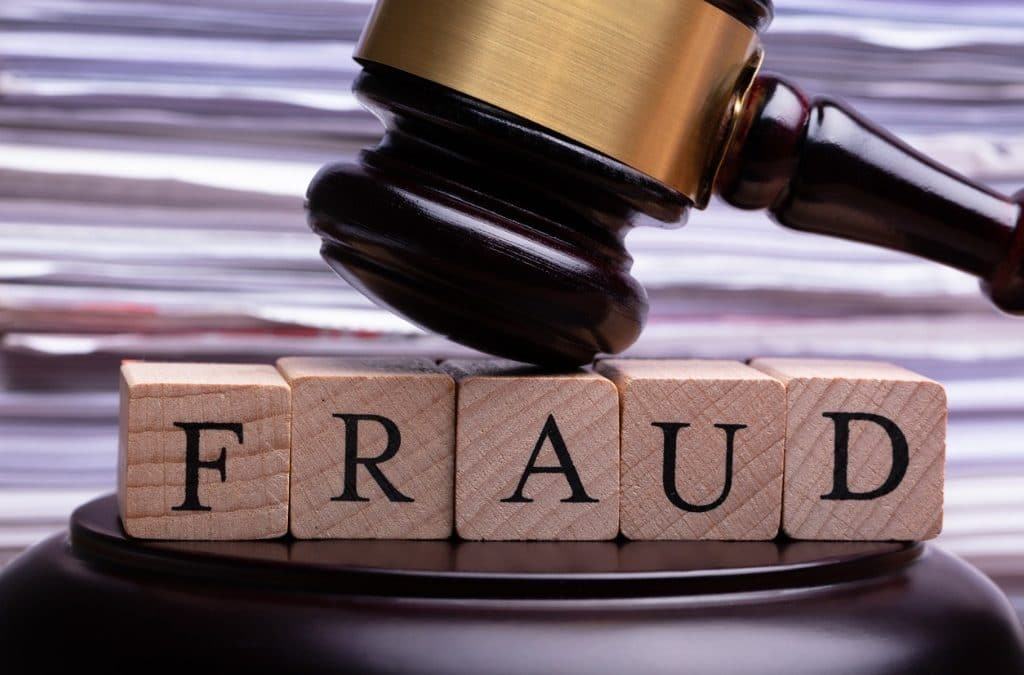Under the rules and systems related to the procurement and contracting process, the United States government deals with private contractors to obtain a wide range of goods and services.
These goods and services include, but aren’t limited to, weapons, aircraft, military uniforms, computer consulting services, and food used to prepare meals for the armed forces.
However, in many industries and through the use of diverse methods and schemes, fraud is perpetrated by companies who contract with the government.
Government contract fraud may be defined as the distortion or suppression of a relevant fact supplied to the federal government or a state government or the exclusion of a relevant fact related to a procurement contract.
There are many ways that companies can attempt to defraud the government, such as procurement fraud, progress payment fraud, cross-charging and mischarging, and violations of the Truth in Negotiations Act, among others.
Aside from protection by federal laws such as the Federal False Claims Act (FCA), which regulates the government contracting process and thus combats fraud, individuals known as whistleblowers often come forward to reveal fraudulent behavior involving government contracts.
This article will examine various types of government contract fraud, how government contract fraud cases work, and how such cases relate to the practice of whistleblowing.
If you believe that you may have a whistleblower case on your hands, please get in touch with us immediately so that we can provide you with direction on what to do next.
Recommended Read What Is the Federal False Claims Act?
Common types of government contract fraud
The following types of government contract fraud cases are among the most common.
- procurement fraud
- progress payment fraud
- fraud related to non-conforming materials
- cost mischarging and cross-charging
- faulty pricing practices
- violations of the Truth in Negotiations Act
Procurement fraud
Contracts with the US Government involve numerous federal agencies and departments. Cases of procurement fraud may be related to contracts with the Department of Defense (DOD), the Department of Housing and Urban Development (HUD), or the National Aeronautics and Space Administration (NASA), among other entities.
During the bidding, negotiation, and performance aspects of a government contract, a contractor must present certificates and affidavits that might later form the basis for a False Claims Act case.
Progress payment fraud
An essential factor in contracting with the government is the need for contractors and subcontractors to operate truthfully in all government dealings. Thus, various contractor certifications, including certification of applications for progress payments, are necessary.
Progress payment fraud occurs when a contractor applies for payment while a contract is being fulfilled, and falsely certifies that he or she has incurred costs qualified to be reimbursed or that no impediments to payment exist.
Fraud related to non-conforming materials
Fraud concerning nonconforming materials takes place when government contractors falsify documents stating that all materials meet the contract specifications when all or some do not.
In such cases, contractors fraudulently substitute unauthorized materials and unlawfully bill the government based on price instead of cost.
Cost mischarging and cross-charging
Cost mischarging occurs when the government is (1) charged for costs that are not permissible under a given contract, (2) charged for costs related to a different contract, or (3) merely overcharged for goods or services.
Similarly, cross-charging, also known as commingling of contracts, is often seen in defense contractor fraud and involves charging for an item or service more than once by using multiple defense contracts for reference.
In such cases, multiple invoices are submitted, and various contracts or work orders are used for any work done or expenses incurred.
Faulty Pricing Practices
Defective or faulty pricing occurs when information about costs or prices is falsified or inaccurately submitted by a contractor or its agent to increase profits.
Violations of the Truth in Negotiations Act
Some contracts involving the armed forces or other types of government entities require that a contractor inform the government of the real or likely costs to be incurred in fulfilling a military or government contract.
It is considered a violation of the Truth in Negotiations Act (TINA) if a contractor fabricates, omits, or conceals pertinent information when negotiating a government contract. When whistleblowers reveal such fraud they are sometimes entitled to receive a reward.
How Do Government Contract Fraud Cases Work?
Congressional attempts to prevent contractor fraud can be traced as far back as the above-mentioned False Claims Act, which was passed during the Civil War.
 Since then, the US Congress has passed a number of laws that permit the government to recoup damages, civil penalties, or forfeitures for untruthful claims of payment and other wrongdoing.
Since then, the US Congress has passed a number of laws that permit the government to recoup damages, civil penalties, or forfeitures for untruthful claims of payment and other wrongdoing.
In its present form, the FCA places civil liability on anyone who takes part in at least one of seven types of misconduct.
The Act also authorizes the Attorney General, Inspector General, and private citizens working on the government’s behalf under its qui tam provisions (discussed below), to sue those who allegedly violate the Act.
Under the FCA, no specific proof of intent to defraud the government needs to be demonstrated. Among other things, liability under provisions of the FCA that are often used against contractors requires that a “false or fraudulent” request for government payment be made.
How does Whistleblowing Relate to Government Contract Fraud Cases?
Whistleblowers, who can be private individuals, companies, trade organizations, or labor unions, often bring civil cases based on fraudulent acts carried out by government contractors to the attention of the government.
When a contractor commits fraud against the government and a whistleblower is aware of the fact, under the FCA they are entitled to bring a civil action (qui tam action) against the contractor in the government’s name.
A qui tam action may be brought by any relator (the legal term for whistleblower) against any entity deceitfully collecting money from the government by filing false claims, as in contract fraud.
The relator must have data that verifies the claim of fraud against the government. Upon successful completion of the civil case, the government may share with the whistleblower a portion of the money collected, along with a part of treble damages and penalties, if any.
Recommended Read The Ins and Outs of Whistleblower Cases
Whistleblower Info Center is here to help!
If you believe that you have a whistleblower case on your hands, chances are that you are probably confused, unsure of what to do next, and maybe even a little scared. That’s okay! Our team of attorneys here at Whistleblower Info Center is here to help you.
We are well-versed in all facets of whistleblower law and government contract fraud cases and can provide you direction and guidance on what to do and where to go next.

